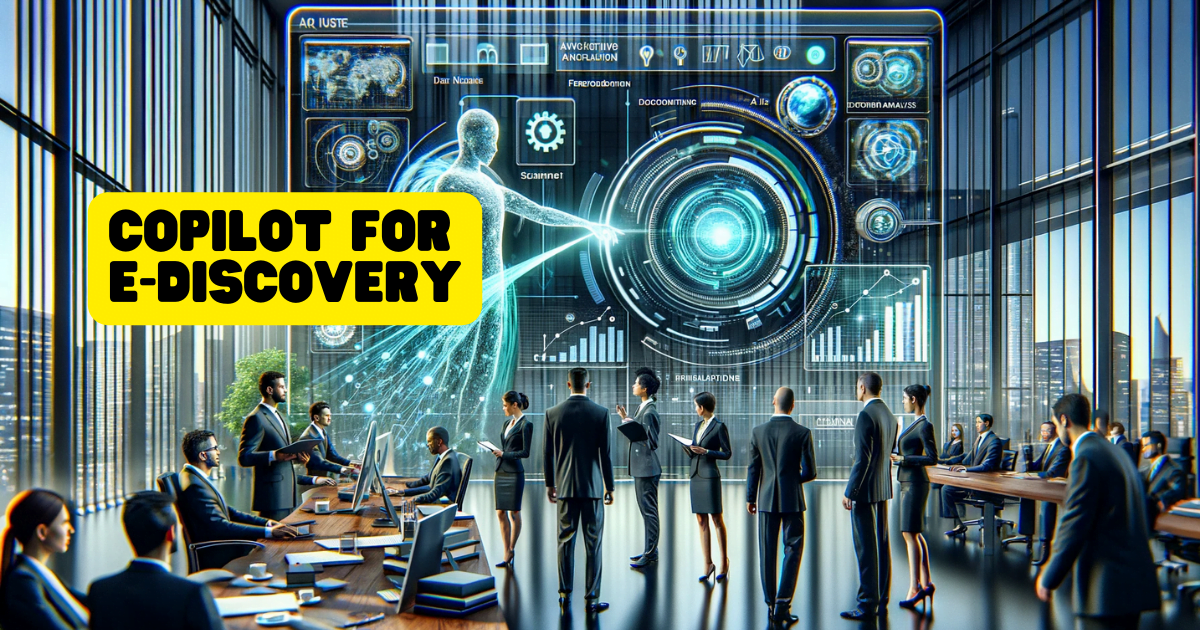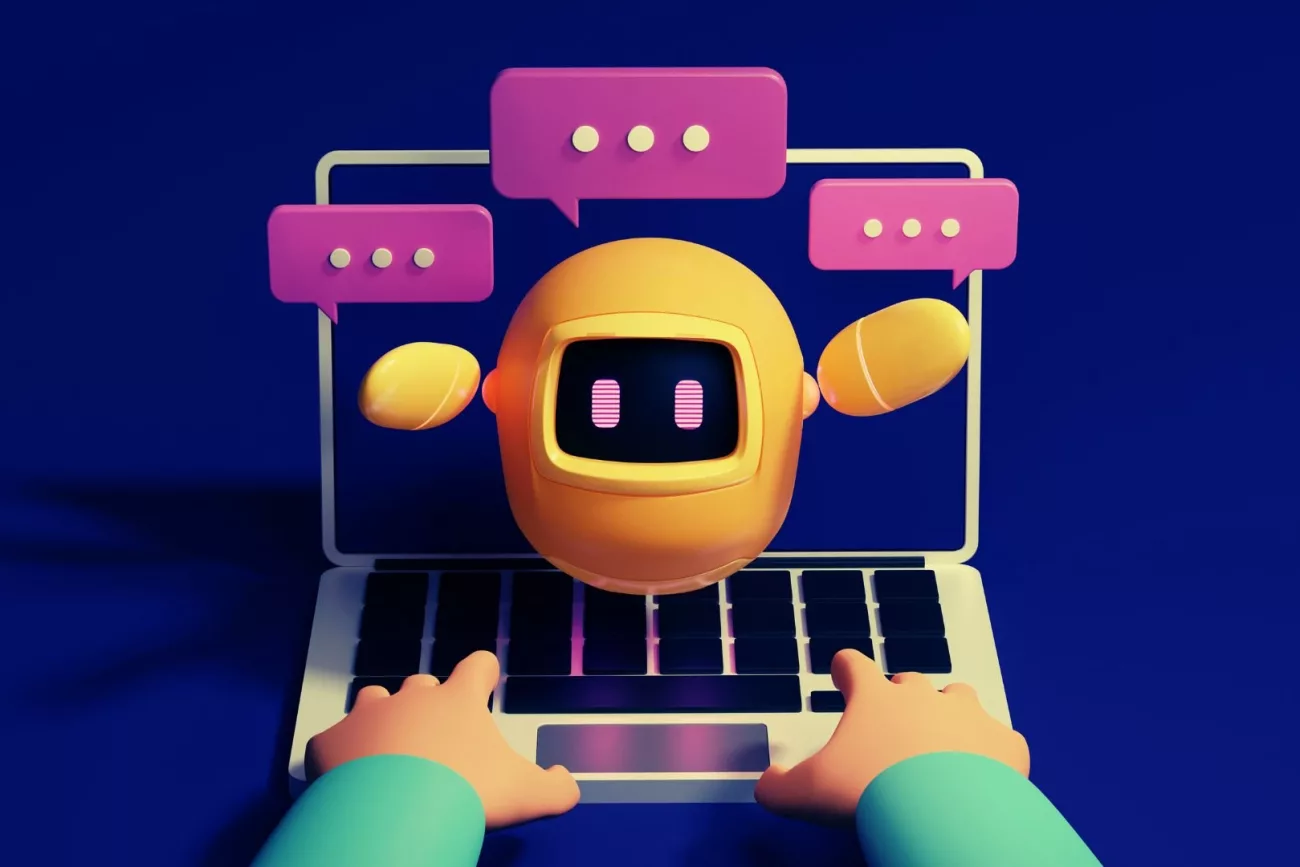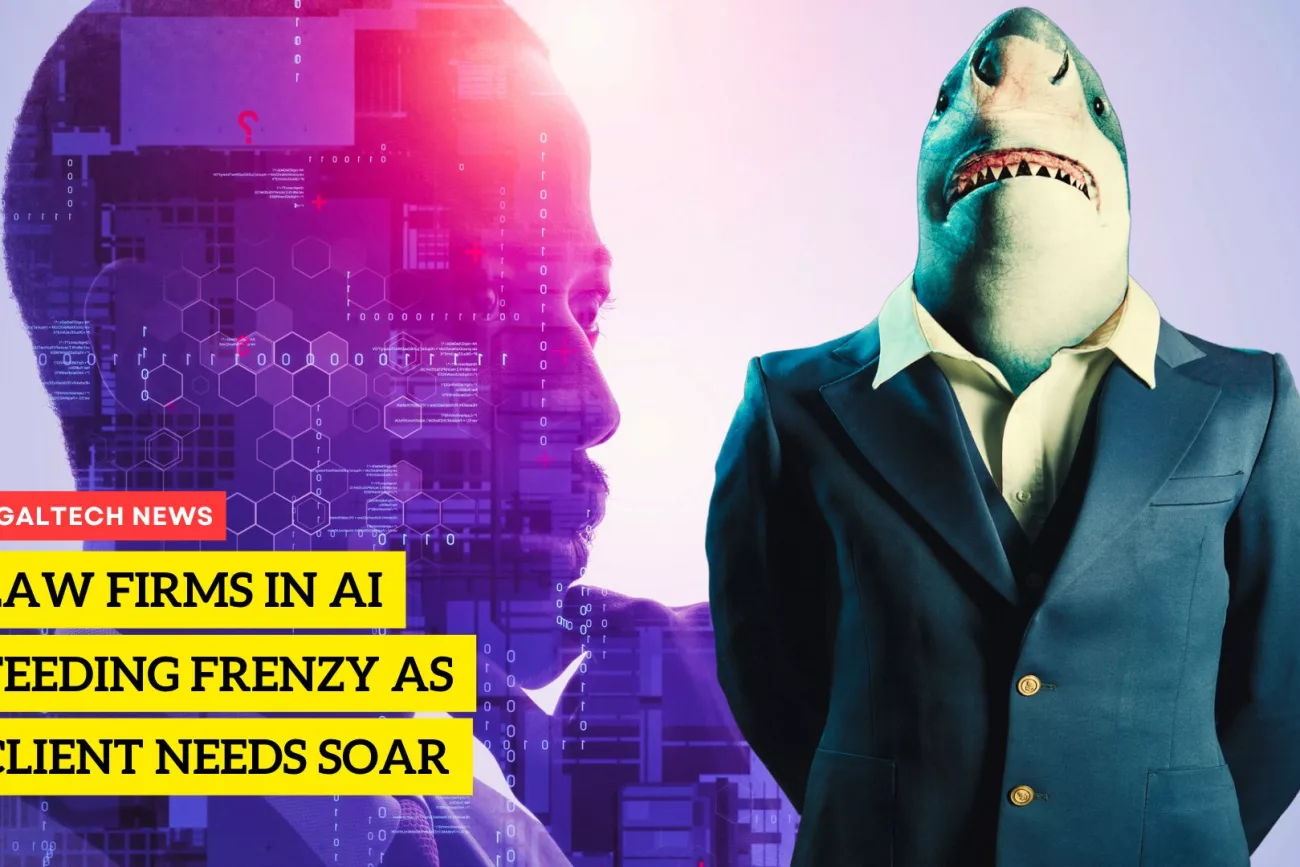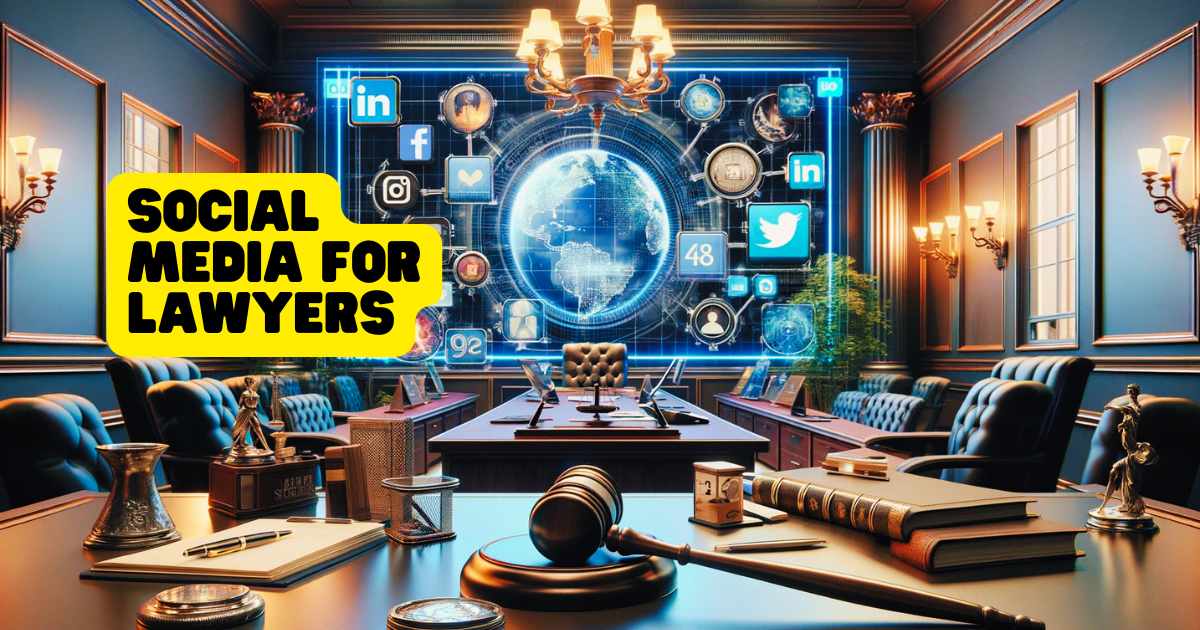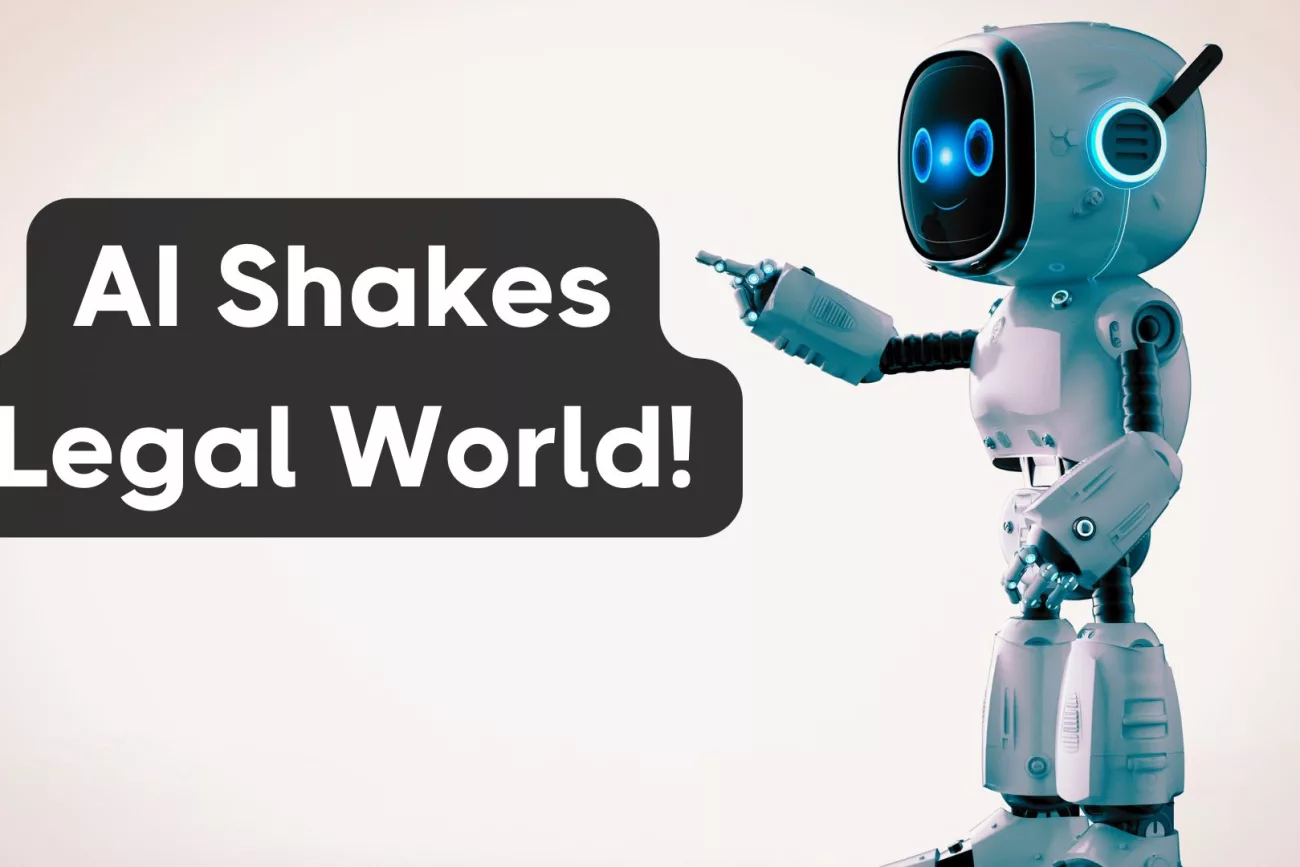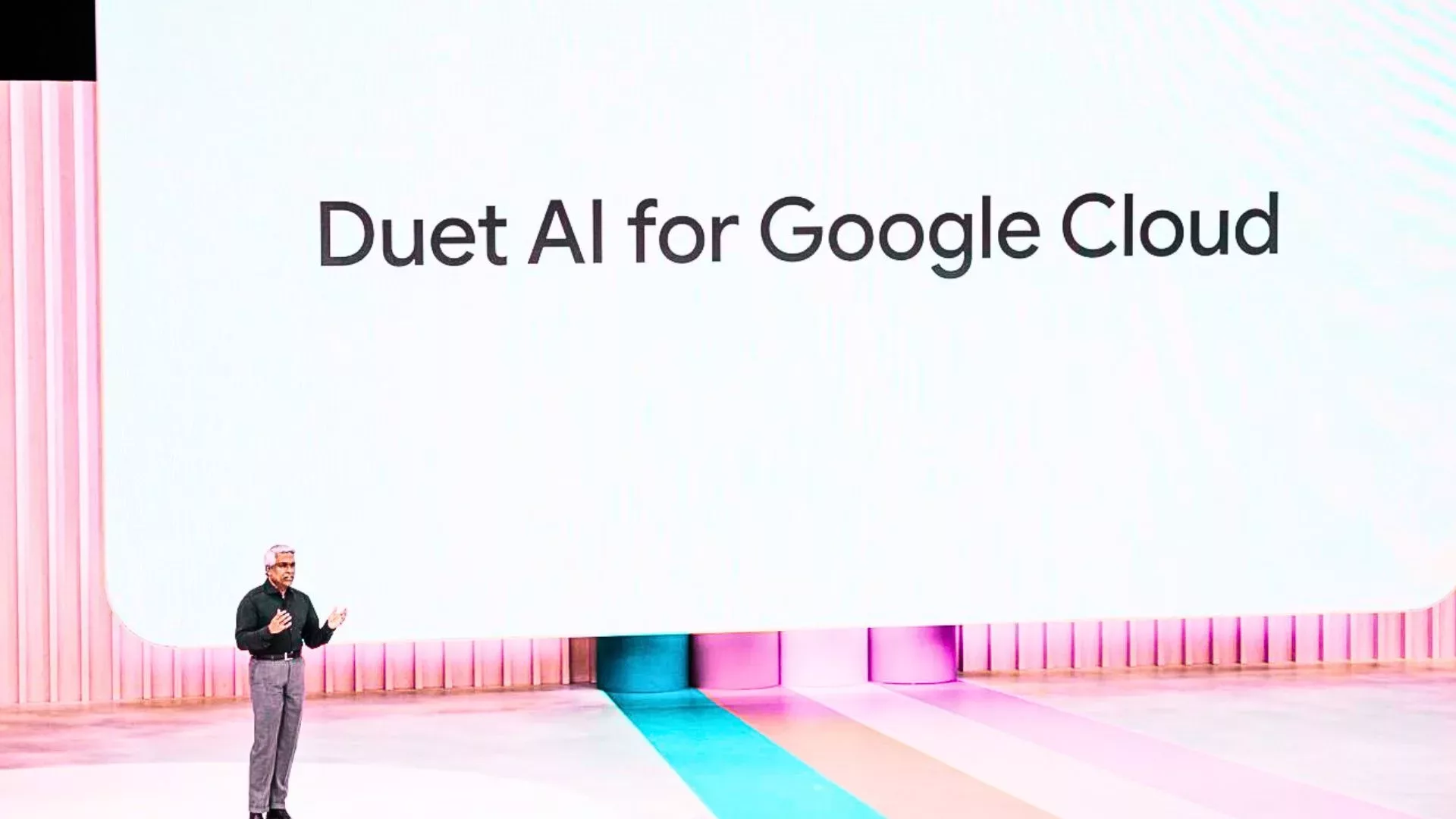
Key Points:
- Google’s new AI tools aim to revolutionize legal tasks, from drafting emails to predictive analysis.
- The rise of AI presents both opportunities and challenges, including ethical dilemmas and potential biases.
- As tech giants like Google, Microsoft, and OpenAI jostle for dominance, legal professionals must navigate a rapidly evolving landscape.
- The integration of AI in law not only reshapes legal processes but also promises a future filled with both tech-driven advantages and courtroom controversies.
Google vs. The World: Cloud Wars, AI Antics, and the Law Firms Caught in the Crossfire 🌩️🤖
Hold onto your legal briefs, folks, because the tech titans are at it again. If you thought Google was only good for a quick fact-check during a trial recess, think again. This story isn’t just about the big guns battling for cloud supremacy; it’s about what it means for the legal industry. Prepare for a heavy dose of controversy!
The Cloud Collision Course: Big Tech’s Power Play 🌩️🏢
While the world was busy keeping up with the Kardashians, the real drama was unfolding in the cloud realm. When it comes to the cloud market, the race is hotter than a freshly printed legal document. Let’s dive into the game-changing moves from Google as they challenge the cloud monarchy of Microsoft and Amazon.
Google Cloud’s New Play: Risky Business or Calculated Strategy?
The AI Power Play: In an era where data is the new oil, AI is the refinery. By allowing broader access to its cutting-edge AI technology, Google isn’t just throwing down the gauntlet; they’re making a power move akin to a king’s gambit in chess. Could this escalate into patent wars or copyright disputes? Legal professionals, time to polish those litigation skills.
The Underlying Message: More than just a technology launch, this move sends ripples across the industry. It signifies Google’s ambition, perhaps a signal to Microsoft and Amazon that the tech behemoth is neither the third wheel nor the underdog. Google’s move screams, “Step aside, folks. The OG of search is here to claim its cloud crown!”
The Market Dynamics: Currently, Amazon and Microsoft enjoy their comfortable perches atop the cloud market ladder. Google’s latest play is akin to shaking that ladder vigorously. How will this impact market dynamics and contracts? And more importantly, for the legal eagles, what does it mean for cloud licensing, compliance, and data governance?
CEO Thomas Kurian’s Show-stopping San Francisco Soiree:
Beyond the Spotlight: When Kurian took center stage at Google’s swanky cloud conference, attendees expected insights, perhaps some tech jargon, and, yes, freebies. What they didn’t anticipate was a sneak peek into the future of AI in their industries, especially the legal realm.
Revolutionizing Legal Drafting: Those countless hours spent drafting emails and going over lengthy contracts? Imagine if a significant chunk of that could be automated, streamlined, and optimized. The unveiled AI tools are not about replacing legal prowess but enhancing it. Think of it as having an AI-powered legal assistant that doesn’t take coffee breaks.
Implications for the Legal Field: If these AI tools live up to the hype, we might be looking at reduced hours for tasks, potentially impacting billable hours. Legal firms may need to reassess their pricing models. Additionally, with AI coming into play, issues related to data privacy, AI ethics, and even errors in AI recommendations will rise to the forefront.
A Glimpse into the Future: The tools Kurian showcased hint at a future where AI seamlessly integrates into the legal world. The critical debate then becomes about balancing efficiency with the human touch and judgment. How much should we rely on AI, and where do we draw the line?
The Rise of AI in Legal Operations: Not Just Sci-Fi Anymore 🤖⚖️
While courtroom dramas on TV might portray law practice as hours of thrilling courtroom exchanges, any seasoned lawyer will tell you about the countless hours spent on document reviews, case preparations, and research. Enter AI, with its promise to reshape the legal landscape. But wait, there’s a twist. How about an AI that can conjure up a lasagna recipe while also helping you craft a watertight contract?
Google’s AI Recipe Masterpiece: More than Just Food for Thought
The Gourmet and the Gavel: On the face of it, recommending a delightful spinach and ricotta tortellini based on your fridge’s current inventory might seem leagues apart from legal operations. But the underlying technology, the art of drawing meaningful inferences from data, is the common thread. If Google’s AI can whip up recipes from random fridge assortments, imagine its prowess in analyzing legal data.
A Practical Scenario: Let’s set the stage. Your client is a major food conglomerate. They want to launch an app for personalized recipe suggestions, but there are concerns about user data privacy, intellectual property rights on recipes, and potential liabilities. Google’s AI, adept at recipe generation, becomes a two-edged sword – a product feature and a tool to assess associated legal complexities.
Why Should Law Firms Care? The AI Transformation Beckons
Automated Legal Document Reviews: AI can meticulously analyze thousands of pages of legal documents in a fraction of the time it takes a human, flagging inconsistencies, potential issues, or relevant case laws. Imagine a world where preliminary document reviews don’t consume hours but mere minutes.
The Predictive Prowess: Based on historical data, AI might be trained to predict case outcomes or the probability of a lawsuit’s success. While it doesn’t replace human judgment, it can provide attorneys with a statistical perspective.
Courtroom Prep Perfected: Remember those late nights scouring through binders, prepping for a case? With advanced AI tools, attorneys could get summaries, relevant precedents, potential counterarguments, and more, all served on a silver digital platter.
Ethical Considerations & AI: It’s not all rosy, though. The rise of AI in legal operations brings forth debates about the ethical implications. Can an AI tool’s recommendation be considered legal advice? What if there’s a bias in the AI’s predictions? These are uncharted territories that the legal industry needs to navigate.
Heavyweights in the Ring: Tech Titans and Their AI Ambitions 🥊💼
The technology arena is no stranger to titanic clashes. Every once in a while, behemoths lock horns, challenging each other’s supremacy. And when the contenders are as formidable as Google and Microsoft, with the AI frontier as their battleground, you know sparks will fly. But as the tech giants race to the top, where does this leave the legal professionals? Right in the thick of it!
Google vs. Microsoft: The AI Duel
A Challenger Appears: Google, not one to rest on its laurels, has unveiled its latest AI-driven cloud offerings. Their ambition? To outshine Microsoft and establish themselves as the alpha in the AI ecosystem.
Legal Implications: These two giants have vast patent portfolios. As they jockey for position, there’s potential for patent disputes. Legal counsels, sharpen your pencils and prepare those briefs! Potential IP infringements might just be the next big courtroom drama.
Behind the Scenes: While Google flaunts its advancements, Microsoft isn’t idly standing by. They have their own cache of AI wonders, and their vast enterprise footprint gives them an edge. But with Google’s recent revelations, the pressure is on for Microsoft to showcase something groundbreaking.
For the Lawyers: Contracts, collaborations, and mergers could be on the horizon. Legal teams should be prepared for intricate negotiations and possible regulatory scrutiny.
OpenAI – The Hidden Chess Player
OpenAI’s Crown Jewel – ChatGPT: OpenAI isn’t just another player in the AI sandbox; it’s the craftsman behind the sensational ChatGPT. This AI has already showcased its prowess, earning OpenAI accolades and recognition.
Where Lawyers Fit In: As OpenAI ventures further, powered by Microsoft’s backing, legal professionals need to be mindful of licensing terms, usage rights, and potential antitrust considerations. With AI this powerful, there’s more at stake than just tech—it’s a legal playground.
Google’s Counterplay: Google’s recent moves raise a pivotal question. Is their foray a genuine innovation that pushes the envelope? Or is it a calculated ploy to reclaim market share, echoing OpenAI’s success with ChatGPT? Only time will tell.
A Note to Legal Eagles: Be ready for discussions around data privacy, intellectual property, and the ethical implications of using such AI. As AI tech advances, so do the complexities and nuances of the legal frameworks governing them.
The Chip Challenge: Silicon, Not Potato 🍟🔌
In the era of binge-worthy shows and savory snacks, this isn’t about that latest potato chip flavor you’ve been dying to try. No, this is about a different kind of chip—one that’s in high demand and running the behind-the-scenes magic of our digital universe: the computer chip. As tech titans scramble for dominance in AI, an unassuming component has them all vying for the upper hand, and it’s about to get legally messy.
Supply vs. Demand: AI’s Big Appetite
The Heart of the Machine: AI’s incredible capabilities are fueled by high-powered computer chips, which are in increasingly short supply. Every industry, from automotive to healthcare, is feeling the pinch, but the world of AI is particularly ravenous.
Legal Tangles: This chip crisis isn’t just a logistical headache; it’s a legal labyrinth. From broken supply chain contracts to IP infringement claims, firms are on high alert. Legal professionals need to navigate warranties, breach of contract scenarios, and perhaps even tort claims arising from business disruptions.
The Great Silicon Gold Rush: Companies are investing billions to ramp up production and advance chip technology. And where there’s money, mergers, and acquisitions often follow. The legal ramifications? Think antitrust concerns, regulatory approvals, and potential shareholder disputes.
Calling All Attorneys: For legal practitioners, the chip frenzy is a potential goldmine. Counsel will be critical in guiding negotiations, drafting watertight contracts, and litigating potential disputes.
Generative AI’s Uncertain Journey: Innovation or Infatuation?
The AI Honeymoon Phase: With the buzz around AI, businesses are flocking to incorporate these new tools. But, as with any emerging technology, there’s uncertainty. Will generative AI truly revolutionize industries, or will it be relegated to the annals of overhyped tech?
Legal Considerations: If AI doesn’t deliver on its promises, who’s to blame? There may be potential claims related to misrepresentation or even product liability. And as AI systems make decisions, questions about accountability, transparency, and even ethics will inevitably surface in the courtroom.
The Tech Rollercoaster: The legal industry has seen its share of tech trends come and go. From the dot-com bubble to blockchain fervor, each has brought its set of legal challenges. Generative AI might just be the latest addition to this rollercoaster.
Advice to Legal Stalwarts: Stay nimble and informed. As generative AI weaves its way into businesses, being proactive will be key. Understand the technology, anticipate its implications, and be ready to counsel clients through the tumultuous world of AI adoption.
The Legal Profession’s AI Dilemma: A Courthouse Conundrum 🏛️💡
From self-driving cars to robotic surgeons, AI’s presence is undeniable. However, when it comes to the meticulous and high-stakes world of law, is there room for algorithms alongside attorneys?
Performance Hiccups: AI on the Witness Stand 🤖⚖️
Quality Concerns: There have been whispers (or rather, loud shouts) from some users about AI’s not-so-stellar performance. Remember when autocorrect changed “statute” to “statue”? Imagine that, but on a larger scale with legal documents.
Legal Repercussions: A minor tech hiccup can lead to major legal ramifications. From incorrect clause insertions to misinterpreted legal research, the stakes are skyscraper-high. And who takes the blame for AI’s mistakes? The software developer? The legal firm? The individual lawyer?
A Double-Edged Sword: On one hand, AI promises efficiency, cutting down hours spent on laborious tasks like discovery. On the other, it might introduce new forms of negligence. Legal malpractice could take on a whole new dimension in this AI age.
The Attorney’s Dilemma: Embrace AI for its potential benefits and risk its pitfalls, or remain in the more manual (and potentially outdated) past?
The Future with AI: The Lawyer’s Crystal Ball 🔮🤷♂️
CEO’s Midnight Musings: If Google’s helm, Sundar Pichai, is tossing and turning over the unpredictability of AI’s trajectory, where does that leave the rest of us? Especially when decisions have implications that extend to the courtroom.
Legal FOMO: With rival firms possibly adopting AI, there’s a fear of missing out. But there’s also the fear of diving into the deep end without a safety net.
Moral and Ethical Quandaries: AI doesn’t just introduce technical challenges. What happens when AI suggests a legal strategy that seems optimal but borders on unethical? As algorithms make more decisions, the legal profession will grapple with previously uncharted ethical waters.
The Balance Beam: Lawyers will need to strike a balance between leveraging AI for its strengths and maintaining the human touch that’s central to justice and client trust.
The Great Legal Debate: Tech Titans or Courtroom Controversies? ⚔️🤖
From tech boardrooms to courthouse chambers, the integration of AI in the legal realm has become the talk of the town. Yet, beyond the bells and whistles, how will the legal community navigate the rapidly changing landscape?
Ethics and AI: The New-age Dilemma 🤔⚖️
Who’s the Author?: When AI-generated content gets presented in court, how do we address authorship? Can an algorithm be held responsible for a biased opinion or a misjudgment?
Liability Landscape: If an AI makes a faux pas, where does the blame lie? With the programmers, the legal professional using it, or the AI itself?
Human vs. Machine: AI presents an array of benefits, from efficiency to precision. However, as it plays a larger role in legal decisions, we must ask: Can we entrust algorithms with matters of justice?
Guardrails Needed: To prevent AI overreach, the legal industry may need to set boundaries ensuring that the human element remains paramount.
Generative AI Pioneer: The Tech Tightrope 🎪🤹
Leading the Pack vs. Learning from it: Google once blazed the AI trail, but now, it seems to be tracing the steps of its predecessors. Is pioneering always the best strategy, or does coming in second provide the advantage of learning from others’ missteps?
Tech Tango: Being first gives a distinct advantage, the first to patent, the first to market. However, the latter entrants can refine, tweak, and perfect. So, is it better to be the early bird or the wise owl?
In Conclusion: Gavel Meets Algorithm 🔨🤖
Dear legal luminaries, the gavel’s bang is echoing not just in courtrooms but in tech conferences worldwide. As AI tools and platforms become legal assistants, they also present potential legal adversaries.
🔥 Hot Take:
Could we one day see a courtroom drama where AI is not just assisting the prosecutor but is the accused itself? Perhaps a future where AI defends its own integrity? Buckle up; the future of law is no longer just about law books but about codebooks too.
Soar Above the Rest! 🦅✨
Don’t let tech revolutions catch you off guard. Embark on a journey into the intricacies of legal tech, AI innovations, and the profound implications on our venerated profession. Subscribe to our newsletter and elevate your legal acumen to the next level. Let the AI buzz be in your briefcase, not just in tech tabloids. 📩👨⚖️👩⚖️
Share this post
Frequently Asked Questions (FAQs)
Q: How is Google's AI affecting the legal world?
A: Google’s recent AI tools promise efficiency for legal tasks, but they also present ethical challenges around accountability and AI’s role in decision-making.
Q: Why should legal professionals be concerned with AI developments?
A: AI tools offer faster document processing and predictive analysis, but they also raise concerns about reliability, bias, and potential legal implications.
Q: Is Google leading in the legal AI sector?
A: Google was once an AI pioneer, but with tools like ChatGPT, they’re now racing to catch up and redefine their position in the market.
Q: What ethical concerns does AI present in the legal world?
A: While ChatGPT offers deep customization, Bing Chat provides robust integration capabilities thanks to its Microsoft lineage.
Q: Can AI replace human judgment in the courtroom?
A: While AI offers efficiency and data-driven insights, human judgment remains crucial, especially in nuanced legal scenarios.



